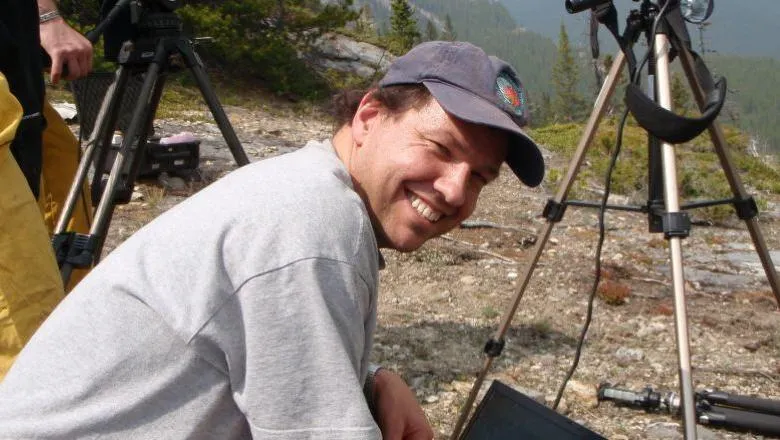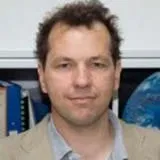"I found out when called up in complete surprise by the Cabinet Office whilst on a train to Sheffield, which was a very nice way to start the Christmas break. I would say that you can't do much without people providing some great opportunities to make the most of, so it's made me reflect on the kindness and support of others during my education and career and on the wonderful, clever, dedicated and fun people I've been privileged to work with, and in many cases still do.”
Professor Martin Wooster, MBE
07 January 2025
King's expert in wildfires and satellite imaging awarded MBE in New Year Honours
Recognition for researcher who helped bring global attention to landscape fire and smoke

Professor Martin Wooster, an expert on satellite Earth observation and the study of landscape fires, has been made MBE in the 2025 Honours List.
Work involving Professor Wooster and his colleagues suggests that smoke from these fires – which burn more than 5% of the Earth's surface every year - is responsible for the deaths of hundreds of thousands of people annually.
This includes potentially 1 in 10 deaths of under-fives, almost all in low and middle-income countries.
Research under Professor Wooster’s leadership has greatly improved our ability to use Earth orbiting satellites to identify where fires are burning globally, the amount of material they are consuming, and how much carbon and smoke they are releasing across the world, ultimately allowing this to be tracked in real time.
He says news of his award came as something of a shock.
Professor Wooster joined the Department of Geography in 1998 and was appointed Professor of Earth Observation Science in 2005. He is currently Associate Director of the Leverhulme Centre for Wildfires, Environment and Society, in partnership with Imperial College London, Royal Holloway and the University of Reading, as well as one of the Directors within NERC’s National Centre for Earth Observation.
Head of the Department of Geography, Professor Kate Schreckenberg said she was delighted to learn of the honour.
She said: “Martin leads a wonderful team in the Geography Department where his work on satellite Earth observation and the quantification of landscape fires has made huge contributions to our ability to monitor, map and quantify the spread of wildfires and smoke in real time and at a global scale.
"Their work has been highly impactful, for example, enabling fire response agencies, landscape managers and public utilities to more effectively manage fires and take decisions on associated air quality risks.”
Many landscape fires are ecologically beneficial, but others – often lit in their thousands to manage or clear land for agriculture – can result in terrible air pollution.
Climate change may also in future alter the number and intensity of wildfires, potentially resulting in more extreme wildfire events such as in Canada 2023 - which spread smoke polluted air across much of North America.
Operational monitoring systems based on the work of Professor Wooster, his colleagues and collaborators have ultimately contributed to authorities being able to manage fires more effectively, and to potentially take action on associated air quality threats.
On the basis of this, new satellites are now being designed to undertake this task even more effectively in future.
Looking ahead to the coming year, Professor Wooster says his research continues at pace
“I'm a big believer in trying to make work an enjoyable place to be, and we enter 2025 with a great team at King's and collaborators in the UK and around the world who do that, and who enable us to build lasting real-world developments that build on our science," he said.
The New Year Honours List for 2025 recognises the achievements and service of extraordinary people across the UK.
According to the Cabinet Office, Member of the Order of the British Empire (MBE) is awarded for achievement or service in and to the community which is outstanding in its field and has delivered sustained and real impact which stands out as an example to others.

